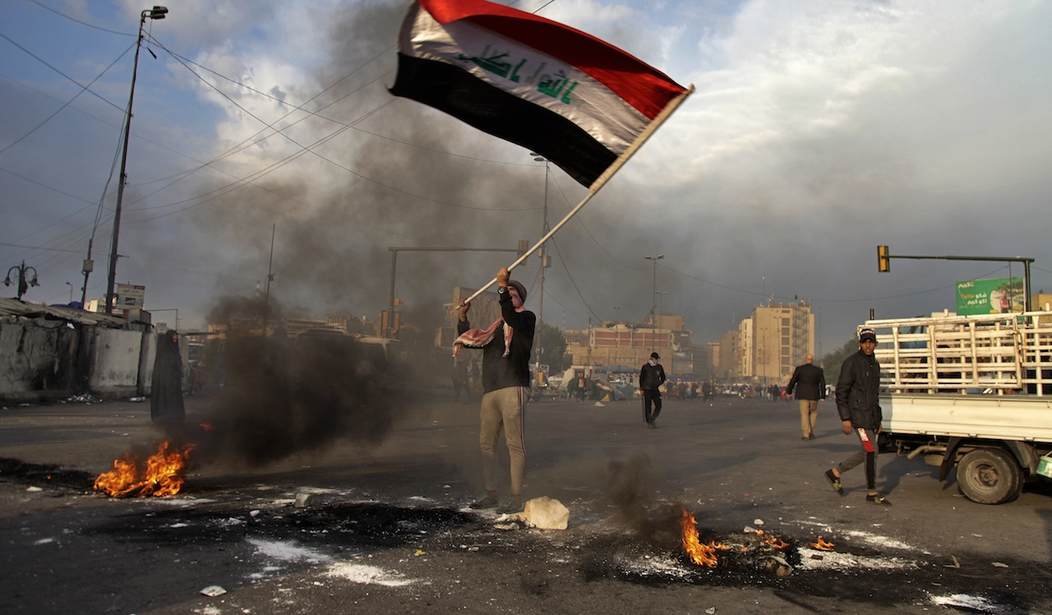With coronavirus extending throughout the Middle East and Shia-dominated militias in Iraq and Syria attacking U.S. outposts, the Pentagon has recently closed some smaller bases. Though helpful in reducing the risk to our troops, only complete withdrawal will properly preserve our service members’ lives.
If there were a compelling case to be made that U.S. combat troops in the Middle East materially improve American security, it might be reasonable to expend even substantial resources to support our forces on the ground in the Middle East. But that is not the case.
Especially when viewed in the context of the extraordinary hit to our economy this coronavirus is imposing, it makes no sense to bleed our country of desperately needed funds on a mission that makes us weaker and exposes American soldiers to regional threats made possible only due to their geographic proximity. Continuing these missions is like playing with fire.
Recently, NPR reported on U.S. operations in Syria, interviewing a U.S. Army tactical commander, Capt. Alex Quataert. The American mission in Syria, Quataert said, was to “secure the oil infrastructure” for our partner forces. This objective–completely disconnected from U.S. interests–has brought the captain’s troops into near-conflict with NATO-ally Turkey and Syrian-ally Russia.
It has also put them at risk of attack by Syrian troops, Iranian troops, and countless hostile rebel groups. One accident or miscalculation by any party risks sparking a larger conflict that could drag the U.S. into yet another pointless and entirely counterproductive Middle Eastern war. Meanwhile, our approximately 5,000 troops in Iraq are faring even worse.
Recommended
An American military contractor was killed in Iraq last December and three coalition soldiers were killed by a rocket attack last month. In the first case, we retaliated by killing 25 members of Kataib Hezbollah, which then spawned a riot at our embassy in Baghdad, followed by an escalatory strike in which we killed a senior Iranian general–which itself spawned a missile attack by Iran that wounded over 100 more Americans.
In the second case, the U.S. yet again attacked five Kataib Hezbollah sites in Iraq, but this time killed three troops and two policemen of our Iraqi hosts in the process. This action has predictably infuriated many in the Iraqi government. As a result, they have been less than forthcoming in helping protect our troops or in finding who launched the attacks. Also predictably, Kataib Hezbollah has vowed to continue seeking revenge against our troops for the losses.
Last month, the Washington Post reported that a U.S. defense official in the region confided that “Kataib Hezbollah wants to pay back the Americans for the killing” of senior Kataib Hezbollah leaders. Iran, too, is likely to continue using proxy forces to extract vengeance for the killing of their general last January.
U.S. officials now admit they receive near-daily reports of imminent attacks against U.S. Forces in the region. The biggest take-away in all the above-described threats is this: the only way these militia and proxy forces can pose any danger to the U.S. is if our troops remain on the ground in the Middle East. Remove our troops, and the ability of any nefarious actor to strike U.S. interests is radically reduced.
Iraq is going to be a churning sea of political instability for the foreseeable future. Predicating the security of America’s troops on that government’s ability to control its people and territory is a recipe for failure. Beginning last October, hundreds of thousands of Iraqi youth began conducting anti-government protests which Baghdad put down violently. The turmoil continues today.
The protests precipitated the resignation of the Iraqi Prime Minister late last year. A new Prime Minister was designated, but when he failed to form a cabinet in early March, his candidacy was withdrawn. The current designated PM is unlikely to succeed either, as there are great divisions within the Shia majority and between the Kurdish and Sunni minority blocs.
Add to that the fact Baghdad is reeling under the weight of the collapse of the price of oil and their own coronavirus battle, and it is clear that Iraq is going to be an unstable place politically and security-wise for the foreseeable future. Since no U.S. security interests are even at stake, it is crystal clear that Washington needs to end our missions in Syria and Iraq and withdraw them all–before one more drop of American blood is spilled.
Daniel L. Davis is a Senior Fellow for Defense Priorities and a former Lt. Col. in the U.S. Army who retired in 2015 after 21 years, including four combat deployments. Follow him @DanielLDavis1.

























Join the conversation as a VIP Member